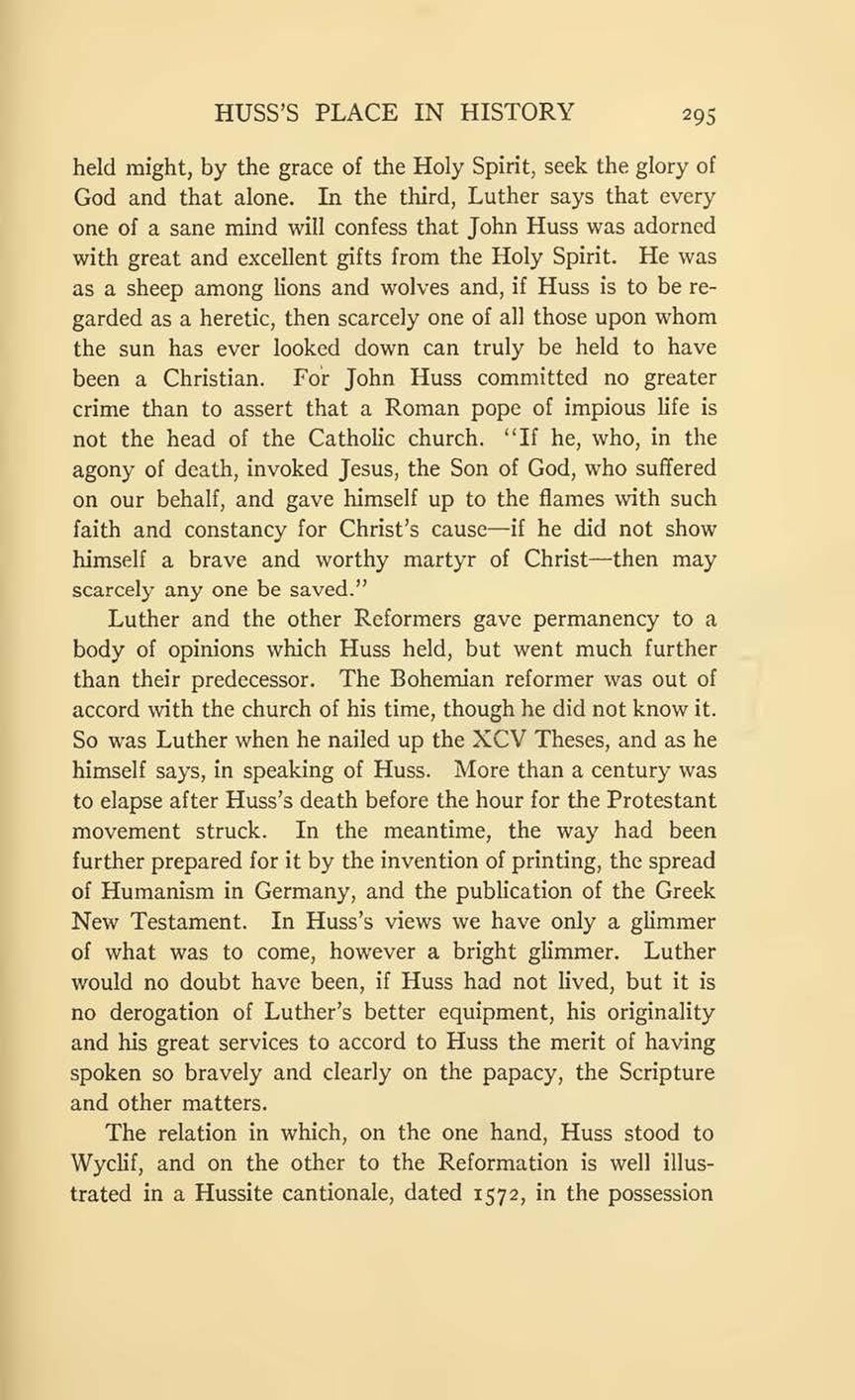held might, by the grace of the Holy Spirit, seek the glory of God and that alone. In the third, Luther says that every one of a sane mind will confess that John Huss was adorned with great and excellent gifts from the Holy Spirit. He was as a sheep among lions and wolves and, if Huss is to be regarded as a heretic, then scarcely one of all those upon whom the sun has ever looked down can truly be held to have been a Christian. For John Huss committed no greater crime than to assert that a Roman pope of impious life is not the head of the Catholic church. “If he, who, in the agony of death, invoked Jesus, the Son of God, who suffered on our behalf, and gave himself up to the flames with such faith and constancy for Christ’s cause—if he did not show himself a brave and worthy martyr of Christ—then may scarcely any one be saved.”
Luther and the other Reformers gave permanency to a body of opinions which Huss held, but went much further than their predecessor. The Bohemian reformer was out of accord with the church of his time, though he did not know it. So was Luther when he nailed up the XCV Theses, and as he himself says, in speaking of Huss. More than a century was to elapse after Huss’s death before the hour for the Protestant movement struck. In the meantime, the way had been further prepared for it by the invention of printing, the spread of Humanism in Germany, and the publication of the Greek New Testament. In Huss’s views we have only a glimmer of what was to come, however a bright glimmer. Luther would no doubt have been, if Huss had not lived, but it is no derogation of Luther’s better equipment, his originality and his great services to accord to Huss the merit of having spoken so bravely and clearly on the papacy, the Scripture and other matters.
The relation in which, on the one hand, Huss stood to Wyclif, and on the other to the Reformation is well illustrated in a Hussite cantionale, dated 1572, in the possession
